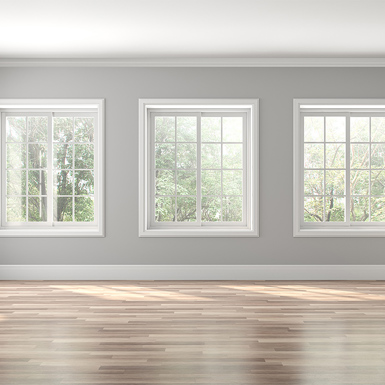What Does Vacant Home Insurance Cover?
When a property sits vacant for any stretch of time, it encounters a different set of risks than those facing an occupied structure, or even one protected by inland marine insurance during the course of construction. A vacant home insurance policy offers much-needed protection for these vulnerable structures, but exactly what and who it covers is often glossed over. Here, we provide answers to frequently asked questions about insuring a vacant home.
What is vacant home insurance?
Vacant structure insurance (also known as vacant home, vacant dwelling or vacant property insurance) is defined as coverage that protects an unoccupied structure during vacancy, should it sustain physical loss or damage from a covered loss.
Who buys vacant home insurance?
Because the primary condition for this insurance is complete vacancy, types of residential clients may vary somewhat. A few of the more common types include:
- Landlords between tenants
- Homeowners selling their residence after leaving the property
- House flippers
What exposures does vacant home insurance cover?
Vacant house insurance is designed to protect the structure (not the land or other assets) from damage when the structure is unoccupied. Though specific coverage varies from provider to provider, a vacant home insurance policy has been known to protect the structure from various exposures including fire, lightning, explosions, windstorms, hail, smoke and water intrusion (such as that caused by sprinklers or leaky pipes). Coverage for vandalism and theft may also be added, but may vary by structure and insurance provider.
Unoccupied homes may be eligible for liability; however, restrictions vary from provider to provider. If the property has certain hazards like ponds, lakes, swimming pools, hot tubs, swing sets or trampolines, the home may not qualify. For policy-specific answers, clients should consult with their insurance agent.
What kinds of dwellings are eligible?
Residential vacant structure policies are available for completely vacant dwellings, provided it is well kept and in good repair. For the vacant structure insurance product available through US Assure, eligible dwellings can include single-family homes, condominiums, townhouses, duplexes, triplexes and fourplexes. These properties can be awaiting sale or undergoing renovations, though it may depend on the extent of the remodel. Additionally, anchored mobile homes or those on a permanent foundation, as well as individual condominiums or townhouse units may be eligible for vacant structure insurance. If structures are going to be demolished, it’s unlikely they will be covered.
Limits as to risk value vary by company. The vacant structure product available through US Assure offers coverage for up to $5 million in property limits and up to $1 million in general liability limits (though this is also subject to underwriter approval).
What coverage is available?
Coverage provided under a vacant home insurance policy differs between providers. The vacant structure product available through US Assure, for example, offers two coverage form types: basic and special. The basic form includes vandalism coverage. In order to qualify for the special form, the structure must be less than 40 years old with neither prior losses nor lapse in coverage. If the structure was built more than 40 years prior, the structure must have been fully gutted and renovated within the past 30 years. All protection classes are eligible, provided a fire station is located within six miles of the structure. Theft protection may also be added to the special form, if the structure has an active central alarm system that monitors for fire and burglary.
Additionally, a multi-location option may be available which enables clients to keep multiple “like” locations can go on one policy, provided the policy limit does not exceed $5 million.
What if your client has a homeowners policy?
Clients who have a homeowners policy may be covered for a given period of time through that policy. According to the National Association of Insurance Commissioners, a home may be considered vacant if left unoccupied for 60 or more days. However, homeowners should contact their agent or insurer prior to vacating, as some homeowners policies have a vacancy clause and may not pay claims if a home is vacant for 60 days or more. Clients may have the option to purchase a policy endorsement to protect their property during vacancy, but should seek their insurance agent’s advice to determine how their specific policy will respond to the circumstances.
Insurance coverage for vacant houses varies widely by provider. To learn what to look for when choosing a vacant home insurance provider, download 10 Items to Consider Before Quoting Vacant and Rental Property Insurance.
This is intended as a general description of certain types of insurance and services available to qualified customers. Your policy is the contract that specifically and fully describes your coverage. The description of the policy provisions gives a broad overview of coverages and does not revise or amend the policy.

Related Resources
View more
Learn business-building tips with five recorded lessons, personalized for personal and commercial lines producers.

Learn what basic information you’ll need to gather before submitting an application online.

Explore scope of coverage, underwriting considerations, project eligibility and more to get you started.





